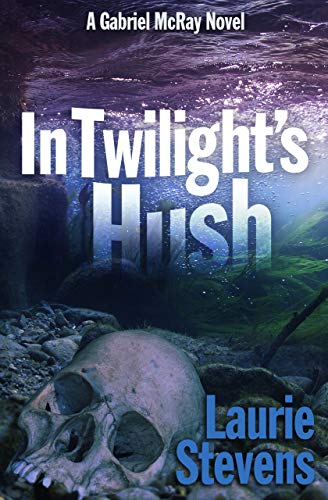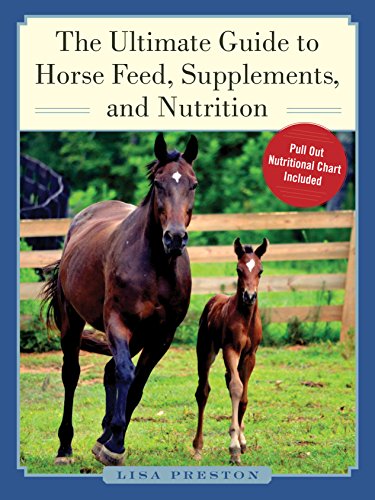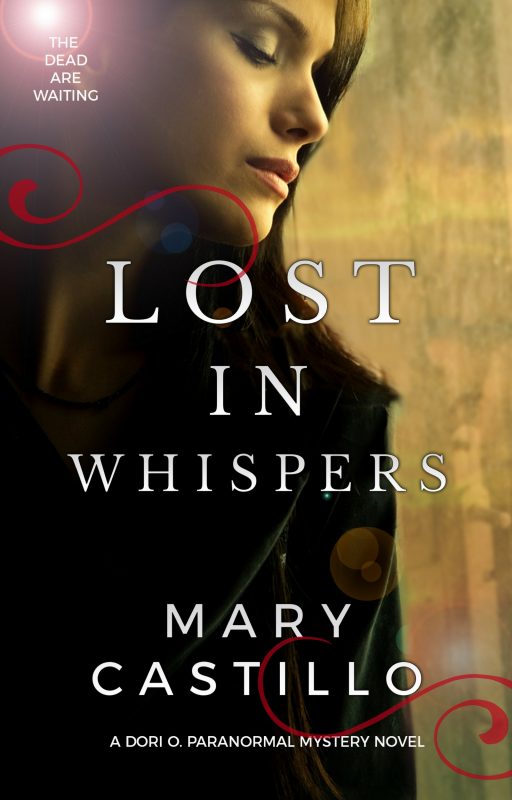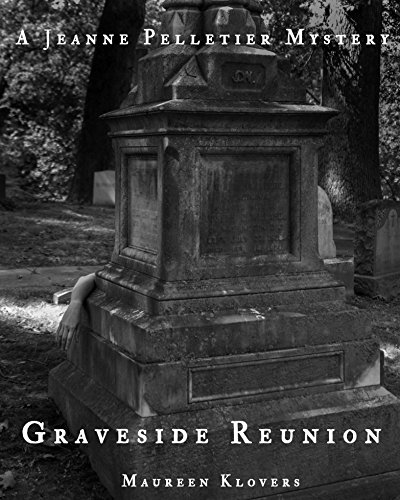Askers and Guessers/Requesters and Diviners which are you? from Isabel Swift
March 24, 2011 by Isabel Swift in category From Isabel Swift tagged as Personality typesI have always enjoyed reading advice columnists, a pleasure which has increased with the advent of the net and the ability of others to post comments on both their opinion of the advice as well as responses to the LW (letter writer in advice column parlance!).
My brilliant friend and sf writer, Ellen Kushner, shared this link, which links to this link, which offers the following paradigm that presents and explains the two different, and occasionally contentious cultures of the Asker (Requester) Vs the Guesser (Diviner). It’s a facinating–and I found very helpful–insight into how differently people react to the same stimulus. Here’s an exerpt from one of the links that lays out the paradigm in a response to a query:
“This is a classic case of Ask Culture meets Guess Culture.
“In some families, you grow up with the expectation that it’s OK to ask for anything at all, but you gotta realize you might get no for an answer. This is Ask Culture.
In Guess Culture, you avoid putting a request into words unless you’re pretty sure the answer will be yes. Guess Culture depends on a tight net of shared expectations. A key skill is putting out delicate feelers. If you do this with enough subtlety, you won’t even have to make the request directly; you’ll get an offer. Even then, the offer may be genuine or pro forma; it takes yet more skill and delicacy to discern whether you should accept.
“All kinds of problems spring up around the edges. If you’re a Guess Culture person — and you obviously are — then unwelcome requests from Ask Culture people seem presumptuous and out of line, and you’re likely to feel angry, uncomfortable, and manipulated.
“If you’re an Ask Culture person, Guess Culture behavior can seem incomprehensible, inconsistent, and rife with passive aggression.
“Obviously she’s an Ask and you’re a Guess. (I’m a Guess too. Let me tell you, it’s great for, say, reading nuanced and subtle novels; not so great for, say, dating and getting raises.)
“Thing is, Guess behaviors only work among a subset of other Guess people — ones who share a fairly specific set of expectations and signalling techniques. The farther you get from your own family and friends and subculture, the more you’ll have to embrace Ask behavior. Otherwise you’ll spend your life in a cloud of mild outrage at the Cluelessness of Everyone.
“As you read through the responses to this question, you can easily see who the Guess and the Ask commenters are. It’s an interesting exercise.”
posted by tangerine at 11:38 PM on January 16, 2007 [859 favorites]
You will indeed be able to determine which are Ask and which Guess as you read the comments. Though I hate to call them “guessers” as this type works hard to read the signals so they aren’t guessing. What seems particularly poignant is that even after the two positions are explained, some of the responders are still on their moral high horse of outrage, excoriating the hapless requester as being poorly brought up and horrifyingly rude.
This is what diversity training is all about! We tend to work from our own experience and make assumptions about behavior based, naturally, on ourselves. And I must say it makes me nervous when people are vilified for behaving differently. For, as Hamlet notes to his friend, “There are more things in heaven and earth, Horatio, than are dreamt of in your philosophy.” (Hamlet, Act 1, Scene 5)
So if you are a Diviner/Guesser, try to avoid feeling pressured by a request. Channel your inner Asker and realize you can Just Say No. Really. They will likely not hate you forever. They were just asking! And by the same token as a Diviner, work on asking more, hating people forever less, and finding a reasonable common ground.
If you’re an Asker/Requester, try to avoid putting pressure on with a request if you don’t know the person well–or even if you do. Try to offer a face-saving out or reassurances. There are mine fields, and whether you choose to be aware of them or not, you may lose limbs and/or friendships!
I hope you found this as insightful as I did. I confess to being a diviner, but have close family members who are askers. I work on responding in kind and trying to channel their straightforwardness when I need it!
So…are you a requester or diviner?
Contest Deadlines
March 21, 2011 by Marianne H. Donley in category Archives tagged as Contests, Orange Rose Contest for UnpublishedUpdated and all sites tested…Compiled by Donna Caubarreaux….May be forwarded with credits.
….
- EA = Electronic Format Available
- EA/Non US = Electronic for Foreign Entries
- EO = Electronic Only
- MO = Members Only
- U = Unpublished
- P = Published
- P/3 = Not published in three years
- Pnr = Published, but not by RWA standards
- PC = Not published in category selected
APRIL CONTEST DEADLINES
..
Fool for Love Contest (EO – U – P)
Virginia Romance Writers
Received no later than Midnight April 1, 2011
First fifty pages plus optional synopsis, five page max.
http://www.virginiaromancewriters.com/Contests/ffl.html
..
Magic Moment (U – P/5)
Heart and Scroll RWA
Postmarked by April 1, 2011
First ten pages.
http://www.heartandscroll.com/contest_MagicMoment_rules.htm
..
Romancing the Script
Scriptscene Chapter
Deadline: April 1, 2011
First act not to exceed thirty pages.
http://www.scriptscene.org/
..
Royal Ascot Contest (EO – U – P/5)
The Beau Monde Chapter
Received no later than Midnight April 1, 2011
First 7K words and optional synopsis limit 500 words.
http://thebeaumonde.com/royalascot/
..
Touched by Love Contest (U – P/3 – EO)
Faith, Hope & Love Chapter
Received no later than Midnight April 1, 2011
First thirty pages and unjudged synopsis up to two pages double-spaced.
http://www.faithhopelove-rwa.org/tbl.html
..
Orange Rose Contest (U – EO – P/5)
Orange County Chapter RWA
Received by April 9, 2011
Beginning and synopsis not to exceed 55 pages.
http://www.occrwa.org/orangerosecontest/
…..
- Check out Contests and Contest Winners on: http://contestdivas.blogspot.com/
- Check out the Award Winning Romance Books on: http://awardwinningromances.blogspot.com/
- Contest Alert-All the news on upcoming contests, plus Finalist & Winner listings, questions, etc. Sign up now! ContestAlert-subscribe@yahoogroups.com
- Announcement only list: ContestDeadlines-subscribe@yahoogroups.com
- For Published Authors ContestAlertPublished-subscribe@yahoogroups.com
- If you’re a Contest Judge, join ContestsJudges-subscribe@yahoogroups.com
Donna Caubarreaux is a member of Coeur de Louisiane, Scriptscene Chapter, NOLA Stars, Heart of Louisiana, and Kiss of Death. She received a RWA Service Award in 1997
What it’s all about – and yes, it can happen to all of us.
March 19, 2011 by Marianne H. Donley in category Archives tagged as First Book, Member At Large, Monica Stonerby Monica Stoner, Member at Large
We sit in front of our screens, our typewriters, our yellow pads, pouring thoughts and emotions out for the world to see with the hopes some day the world will see. Other than our critique partners, our supportive friends and a few anonymous contests judges, our words’ world is very small. We dream of the day we get the call, and as we keep typing, keep plotting, keep running scenes through our heads while going through grocery checkout, deep down inside we start to wonder. What’s it all about? Is it really worth the time investment?
Sure we need to give a home to our characters. One day. In the meantime there are so many demands on our energy, and to say “I can’t, I have to write†becomes weaker and weaker as the weeks, months, and years slide past. Until “I have to write†segues into “I’ll write later†and the span between writing times grows. We pull ourselves out of the pit from time to time, take a class or two, jot down some plot ideas, maybe enter a contest. Or maybe judge a contest, telling ourselves we’re “giving back†or “keeping our hand in.†We keep up our memberships, though sometimes we wonder if that money couldn’t be spent better elsewhere. Giving up our memberships and meetings might mean we are giving up on ourselves as writers.
Because we retain our memberships, nurturing that tiny spark of hope we hope will rise into a flame; because we still plot, still polish, still review, one day we participate in a pitch contest, and we’re asked to submit. Or we learn of a publisher “actively seeking manuscripts.†And we have just that – a manuscript ready to submit to a publisher for consideration. Maybe we’ve done this before with less than stellar results, until “we find your ideas interesting but your writing is not up to our standards†becomes worse than “it’s not you, it’s me, I need live more before I settle down.â€
This time, though, this time it just might be different. And we send our polished, pressed, primped child off to the prom with an introduction but without us to stand behind them when they fall. We get the automatic acknowledgment of receipt with a promise to get back to us, and an advisory to ask if we haven’t heard within a span of from one to three months. One to three months, can we hold our breath that long?
Conditioned by past disappointments, we put thoughts of the submission out of our minds and go about our every day lives. Houses still need to be cleaned, snow shoveled or sidewalks swept and the laundry never ends. We tell ourselves not to hope, not to think about it, and wait for the rejection so we can at least apply for our PRO status. When the e-mail comes back in a long weekend, we sit with fingers poised on the keys, hand dropped over the mouse, take a deep breath, and click. Such a fast response can’t be anything good, can it? The message opens on the screen, and you read:
“I am pleased to tell you that I enjoyed your Into the Woods very much. I found only minor editing problems as I read, mainly punctuation errors, as well as your tendency to shift POV in mid scene, sometimes in mid paragraph. But these are easy fixes. For the most part, Into the Woods is very well written.â€
She said WHAT??
“If you are interested in publishing Into the Woods with us, please let me know, and I will have our attorney prepare a contract for you.â€
Does that REALLY say what we think we’re reading? Better print it out, just in case. Yep, the words are the same on the page as they are on the screen. Gulp. A Sally Field moment, for sure. “For the most part Into the Woods is very well written.†Yep, that’s what she said.
Oh. My. God. It really happened. Someone who doesn’t know you likes your writing and wants to introduce your people to the world. You are a writer. For years you’ve been telling yourself and others the sheer act of putting words on the page makes you a writer. And it does. But now you are a Writer.
Yes, it happened to me. I sent off “Into the Woods†to Black Opal Books on February 17, and had an answer on February 22. I just finished the first round of edits, they want to change the name, and I’m looking at cover art. While doing this for “Into the Woods,†I’m grooming another book to send, this time with fewer dashes and ellipses and without a ping ponging Point of View.
All the years of wishing and hoping and helping out the chapters and taking notes at workshops has paid off. Could I have done it without the fantastic support system set up by and for Romance writers? Maybe, but I doubt it. This one’s for you, OCC. Thank you to everyone who has supported, critiqued, pushed, nagged and given out tough love.
This one’s for Michelle, who gave me OCC’s address. Love ya babe.
Why Enter the Orange Rose Costest?
March 18, 2011 by Marianne H. Donley in category Archives tagged as Orange Rose Contest for Unpublished, Shannon Donnellyby Shannon Donnelly
This question could be asked—why enter any writing contest? What can it do for you—and what won’t it do. And should you even think about entering? Let’s start with some basics, as in what can any contest do for you.
Contests can:
- Get you seen by editors, faster than through the slush pile
- Get you feedback so you can better identify your weaknesses and strengths
- Help you cut and polish your pages
- If you final, get you enough notice to land an agent
- If you win, give you a marketing advantage—a way to have your book stand out from others because your book has already won praise
What it can’t do for you:
- Cannot guarantee a sale
- Cannot guarantee a successful writing career
That’s a lot going for what a contest can give to you. But how do you know if you’re ready? And why enter the Orange Rose contest specifically?
Things to think about before you enter:
- Do you have the opening couple of chapters finished
- Do you know the ending of your book (helps you write a synopsis)?
- Do you have an issue with the first pages that you don’t know how to fix?
- Do you have trouble figuring out how to market your book?
- Do you need feedback beyond your immediate family (who loves everything you do, or who has never seen anything you’ve written)?
- Do you wonder if you’ve started the book in the right place?
- Do you put off getting your pages finished?
- Do you have a synopsis that is over ten pages?
- Do you wonder if your core conflict is weak or on target?
If you answer yes to any of these questions, you might be ready for the Orange Rose contest. If you’ve answered yes to three or more of the questions, you should think about entering. If you’ve answered yes to more than seven of them, it’s definitely time to enter.
Contests aren’t just about winning—they are also a way to track your own progress as a writer. This actually used to be a lot more possible to do with submissions and rejections, but these days it’s too easy for good work to get rejections. Contests help fill that gap, give you better feedback, and they give you deadlines so you can start to see if you can actually make a writing career work.
But why the Orange Rose?
There are several excellent reasons. But let’s start with the best one—the feedback in the Orange Rose comes from published authors.
Now, all judging is subjective. That means some folks like oranges better than apples, and an opinion is an opinion. But a published author has learned what works—the hard way. There is an experience here that does help in that every published author knows one thing: flawed writing will sell. Every story has its strengths—and its weaknesses. But a published author has learned how to accent one and cover up the other. That’s knowledge those authors can pass along.
The next best reason is fifty-five pages—same as the Golden Heart. You may have a brilliant first couple of pages. Or your brilliance may shine at page thirty. But you won’t know which is which in the Golden Heart, which just gives you back a number. The Orange Rose is still one of the best contests around which can tell you if you’re ready for the Golden Heart, and gets you feedback in time to make revisions.
There’s also the excellent reason of money—cash awards! And while writing may not just be about the money for you, there’s nothing quite like stepping up into the category of a writer who is becoming a professional—you’re getting paid to write. That’s pretty heady stuff.
Finally, it’s your chapter contest. When I was still unpublished and struggling, the Orange Rose was a measure of my own success. It was also a contest I always wanted to win—I never managed a win, but I was a finalist several times, and I always got the best feedback. And recognition from my peers.
If you use it right, the Orange Rose can teach you how to set goals and reach them.
It can be another tool that you can use to help you become published—it’s not the only path there, but it is a path. More than 45 finalists—that’s finalists, not just winners—have gone on to become published authors. That’s quite a track record.
The Orange Rose can be a touchstone of progress. It can give you a big picture look at how you are doing in going up against lots of other writers–the same way that you have to go up against those writers in the slush pile.
And a vote of encouragement from other authors can be just the thing you need to hold onto and use in your darker days to light your path to writing your next book.
To enter the Orange Rose, visit occrwa.org or http://www.occrwa.org/orangerosecontest/ and enter before April 9, 2011.
Published in the March 2011 issue of the Orange Country RWA Orange Blossom newsletter.
Reflections from a Confirmed Twitter Freak
March 17, 2011 by Marianne H. Donley in category Archives tagged as Chris Brogan, Elizabeth S. Craig, Jenny Hansen, Kristen Lamb, OCC/RWA, Penny Sansevieri, Social Media, Twitter, Writers In the Stormby Jenny Hansen
A few months back my boss at the part-time job (that is really a full-time job) asked me to research Twitter. And oh, the rapture of getting paid for doing something that benefitted my writing career!
In the last 10 weeks, the traffic level at Writers In The Storm (my group blog site) has risen more than 500%, my exposure to amazing writing links has risen at least that much and I’ve met some fantastic people who have been more than generous with their knowledge (Elizabeth S. Craig and Kristen Lamb both come to mind).
Most important of all, my creativity is soaring. I’m thinking about writing and connecting to my fellow artists ALL THE TIME.
Writers need to interact with other people who write and are creative – to learn, to commiserate, to brainstorm, to vent. By the end of my first week on Twitter, it was clear to me that all of the new information available on Craft and writing tools is equivalent to attending a conference each month. Even if you are a multi-pubbed author and aren’t as into the Craft information, you need readers and exposure, don’t you? Facebook should not be the only social media tool in your author platform.
For those of you that get jazzed after this blog and want to get started, here are some tips that I sent my boss as well as some observations of my own.
• 7 steps to plan BEFORE starting your Twitter account: http://ezinearticles.com/?7-Tips-For-Starting-on-Twitter—The-Deceivingly-Simple-Social-Media-Platform&id=2501605
• Sign up for a Twitter account: http://www.twitip.com/how-to-set-up-a-twitter-account/
• Last of all, 10 Basic Rules of Twitter: http://www.influentialmarketingblog.com/weblog/2009/08/10-basic-rules-of-twitter-and-how-to-avoid-being-a-twanker.html
• Expert: Chris Brogan is thought well of in social media circles and has great things to say about business and writing – you might read him when you have time: http://www.chrisbrogan.com/category/socialmedia/
Here are some highlights of the 10 Basic Rules:
As you start Twittering, remember to focus on engaging in conversations with your followers rather than pushing or selling your own products and content. If followers feel they’re being sold to, they’ll unfollow and block you faster than they’ll hang up on your annoying IVR (and then Tweet about it). A few guidelines:
• Use @ replies to comment back to your followers’ Tweets
Note: You cannot send direct messages (DM’s) to people who don’t Follow you so the @ replies are often the only way to get info to someone you want to speak with.
• ReTweet liberally. To reTweet a user’s Tweet, simply write “RT @username” and cut and paste the content of the original Tweet. Or just use the RT button if your desktop or smartphone app has one.
• Post links to articles and content you think your users would find interesting. A good guide is Chris Brogan’s rule of promoting other people’s content eight times more often than you promote your own.
• Post links to your own content, but see above.
Last but not least, You might enjoy “Tweetie,†the iPhone app for Twitter: http://itunes.apple.com/us/app/twitter/id333903271?mt=8 (there is also Twitter for the Android).
What the experts say:
OCC was lucky enough to hear marketing guru Penny Sansevieri, the author of Red Hot Internet Publicity, speak several months back and I subscribed to her newsletter. Below are her Six Quick Tips for Twitter Success:
1. A bio is a must. A recent Harvard Business Review study showed that 82% of unsuccessful Twitter accounts have little or no bio information.
2. You should provide more than 3 links per 20 tweets and you should update more than once a day.
3. If you don’t provide links in your tweets, you should plan to post more often (studies suggest as much as six times a day). You should have no more than 15 updates a day.
4. Twitter names are becoming like URL’s were in the early years of the Internet. Make sure and grab all your branding and your name.
5. Don’t use underscores_ when you’re creating a user name. Not only does it look amateurish but a number of spammers have hacked into Twitter that way. You don’t want to look like a spammer.
6. Always engage and reply to the @reply responses on Twitter. Why? Well first off it’s important to engage your followers, but second, those @replies help with your Twitter ranking.
Happy Tweeting – I’d love to hear about the successes and pitfalls you stumble across in your own social media journey!
Jenny Hansen fills her nights with humor, writing memoir, women’s fiction, chick lit and short stories (and walking the floor with her new baby girl). By day, Jenny coordinates training for two accounting firms. After 15 years as a corporate software trainer, it’s nice for her to be able to sit down while she works.
Stay tuned every month on the 17th for Jenny’s blogs on software, computer how-tos, new parenthood and the latest works in progress. The rest of the time you can find her on Twitter at jhansenwrites or over on the Writers In The Storm blog.
Affiliate Links
A Slice of Orange is an affiliate with some of the booksellers listed on this website, including Barnes & Nobel, Books A Million, iBooks, Kobo, and Smashwords. This means A Slice of Orange may earn a small advertising fee from sales made through the links used on this website. There are reminders of these affiliate links on the pages for individual books.
Search A Slice of Orange
Find a Column
Archives
Featured Books
IN TWILIGHT’S HUSH (A GABRIEL MCRAY NOVEL BOOK 4)
Detective Gabriel McRay investigates a cold case from 1988 involving a missing teenager named Nancy Lewicki.
More info →THE ULTIMATE GUIDE TO HORSE FEED, SUPPLEMENTS, AND NUTRITION
A comprehensive guide of the dos and don'ts of equine nutrition--featuring a full-color pull-out chart.
More info →GRAVESIDE REUNION
A chance encounter with a wealthy congressman leads to an unusual proposition…
More info →Newsletter
Contributing Authors
Search A Slice of Orange
Find a Column
Archives
Authors in the Bookstore
- A. E. Decker
- A. J. Scudiere
- A.J. Sidransky
- Abby Collette
- Alanna Lucus
- Albert Marrin
- Alice Duncan
- Alina K. Field
- Alison Green Myers
- Andi Lawrencovna
- Andrew C Raiford
- Angela Pryce
- Aviva Vaughn
- Barbara Ankrum
- Bethlehem Writers Group, LLC
- Carol L. Wright
- Celeste Barclay
- Christina Alexandra
- Christopher D. Ochs
- Claire Davon
- Claire Naden
- Courtnee Turner Hoyle
- Courtney Annicchiarico
- D. Lieber
- Daniel V. Meier Jr.
- Debra Dixon
- Debra H. Goldstein
- Debra Holland
- Dee Ann Palmer
- Denise M. Colby
- Diane Benefiel
- Diane Sismour
- Dianna Sinovic
- DT Krippene
- E.B. Dawson
- Emilie Dallaire
- Emily Brightwell
- Emily PW Murphy
- Fae Rowen
- Faith L. Justice
- Frances Amati
- Geralyn Corcillo
- Glynnis Campbell
- Greg Jolley
- H. O. Charles
- Jaclyn Roché
- Jacqueline Diamond
- Janet Lynn and Will Zeilinger
- Jeff Baird
- Jenna Barwin
- Jenne Kern
- Jennifer D. Bokal
- Jennifer Lyon
- Jerome W. McFadden
- Jill Piscitello
- Jina Bacarr
- Jo A. Hiestand
- Jodi Bogert
- Jolina Petersheim
- Jonathan Maberry
- Joy Allyson
- Judy Duarte
- Justin Murphy
- Justine Davis
- Kat Martin
- Kidd Wadsworth
- Kitty Bucholtz
- Kristy Tate
- Larry Deibert
- Larry Hamilton
- Laura Drake
- Laurie Stevens
- Leslie Knowles
- Li-Ying Lundquist
- Linda Carroll-Bradd
- Linda Lappin
- Linda McLaughlin
- Linda O. Johnston
- Lisa Preston
- Lolo Paige
- Loran Holt
- Lyssa Kay Adams
- Madeline Ash
- Margarita Engle
- Marguerite Quantaine
- Marianne H. Donley
- Mary Castillo
- Maureen Klovers
- Megan Haskell
- Melanie Waterbury
- Melissa Chambers
- Melodie Winawer
- Meriam Wilhelm
- Mikel J. Wilson
- Mindy Neff
- Monica McCabe
- Nancy Brashear
- Neetu Malik
- Nikki Prince
- Once Upon Anthologies
- Paula Gail Benson
- Penny Reid
- Peter Barbour
- Priscilla Oliveras
- R. H. Kohno
- Rachel Hailey
- Ralph Hieb
- Ramcy Diek
- Ransom Stephens
- Rebecca Forster
- Renae Wrich
- Roxy Matthews
- Ryder Hunte Clancy
- Sally Paradysz
- Simone de Muñoz
- Sophie Barnes
- Susan Squires
- T. D. Fox
- Tara C. Allred
- Tara Lain
- Tari Lynn Jewett
- Terri Osburn
- Tracy Reed
- Vera Jane Cook
- Vicki Crum
- Writing Something Romantic
Affiliate Links
A Slice of Orange is an affiliate with some of the booksellers listed on this website, including Barnes & Nobel, Books A Million, iBooks, Kobo, and Smashwords. This means A Slice of Orange may earn a small advertising fee from sales made through the links used on this website. There are reminders of these affiliate links on the pages for individual books.







































